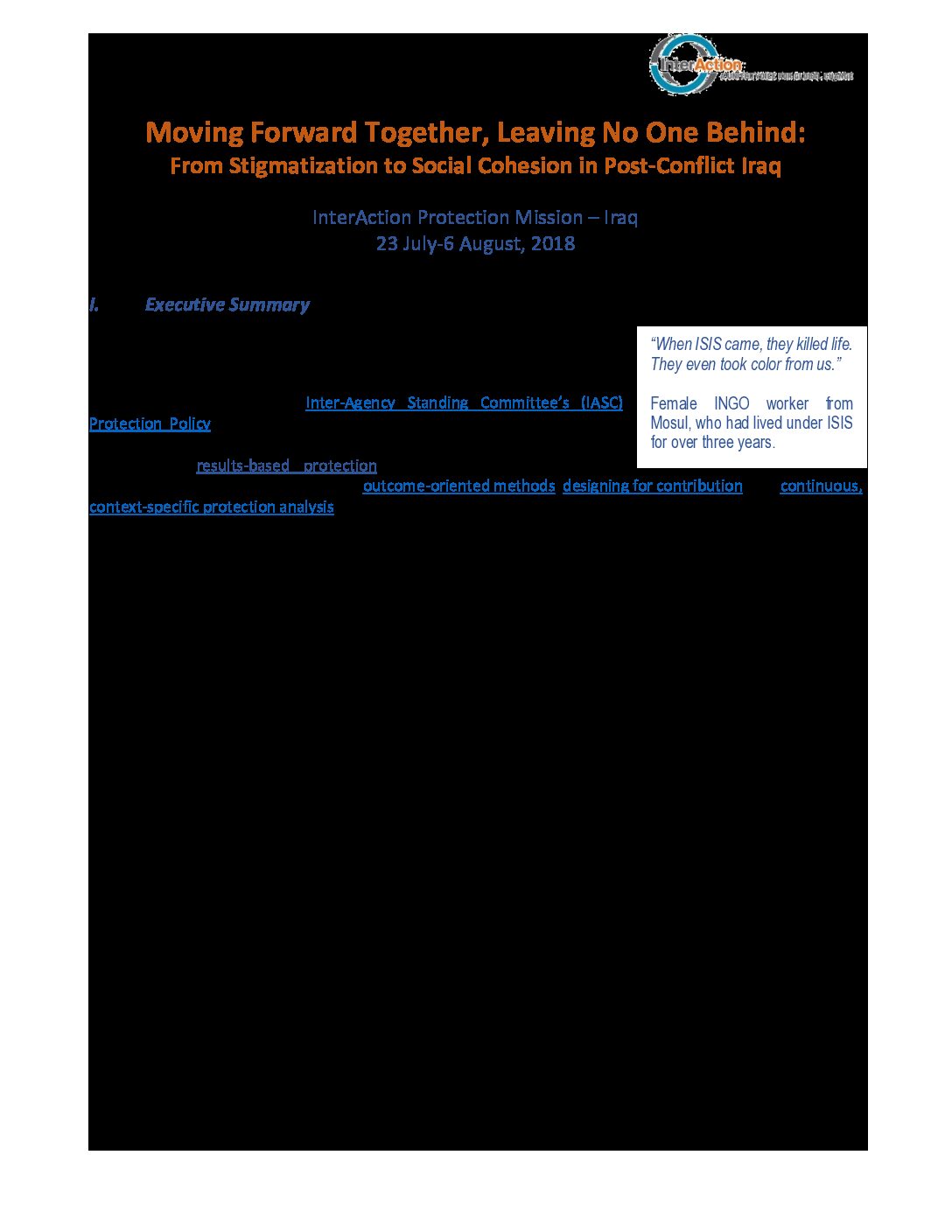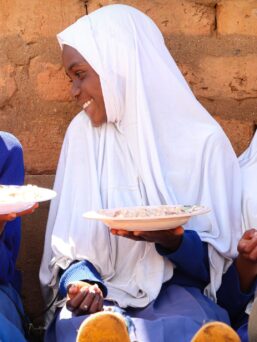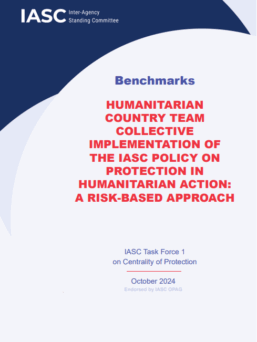has been plagued by decades of internal armed conflict including ethnic, tribal, religious, and sectarian violence as well as unresolved issues in relation to disputed internal territories. Compounding the internal dynamics are numerous regional and international geopolitical interests in Iraq, ranging from Iraq’s natural resources to countering violent extremism. These dynamics have contributed to a chronic breakdown of the rule of law, a significant internal displacement crisis, and a society that many Iraqis consider to be more divided than ever, with political and security actors often perpetuating this divide rather than seeking to repair it.
The human toll of the conflict is profound and has required a large-scale humanitarian operation to provide lifesaving and sustaining services for conflict-affected civilians. The humanitarian operation is evolving, from a life-sustaining emergency relief effort during active fighting, to longer-term projects supporting early recovery. The approaches are theoretically intended to fall under different frameworks, including the HRP and the Recovery and Resilience Programme (RRP), but as described in detail below, there is no functioning transition between the two. Action is required now to address the threats to and vulnerabilities of conflict-affected people, and if efforts are inadequate, there is a risk of renewed violence across the country.
InterAction conducted field research in Erbil, Mosul, Kirkuk, Baghdad, Anbar, and Karbala from 23 July-9 August, 2018 to assess the most pressing protection issues and how they can be addressed by a whole-of-system response in line with the Inter-Agency Standing Committee’s (IASC) Protection Policy. InterAction spoke with a wide range of actors before, during, and after the mission. This outcome report is based on the key elements of results-based protection, especially as it helps frame recommendations around the need for outcome-oriented methods, designing for contribution, and continuous, context-specific protection analysis. The recommendations outlined in this report were developed based on the understanding that a humanitarian protection response should analyze the current context before developing outcome-oriented approaches and gathering the various actors needed to achieve collective outcomes and reduce risks faced by affected populations. This was echoed by several humanitarian actors in-country who recommended that in-depth analysis be conducted before implementation of the recommendations made in this report, especially as it relates to durable solutions; that continuous monitoring and analysis take place in order to allow for the recommended actions to adapt to new developments; and that the humanitarian leadership take the lead on gathering necessary actors across the humanitarian-development divide to work together to achieve collective outcomes.
This report, including the recommendations, is intended to provide support to all humanitarian operational actors, advocacy experts in-country and globally, and the humanitarian leadership, notably the Humanitarian Country Team (HCT). NGOs in Iraq have an important role to play in the implementation of the IASC Protection Policy by incorporating key elements into their organizational approaches to protection, and by contributing to interagency leadership and coordination on protection at country-level, and InterAction accordingly paid particular attention to the role of NGOs in the Iraq response.



